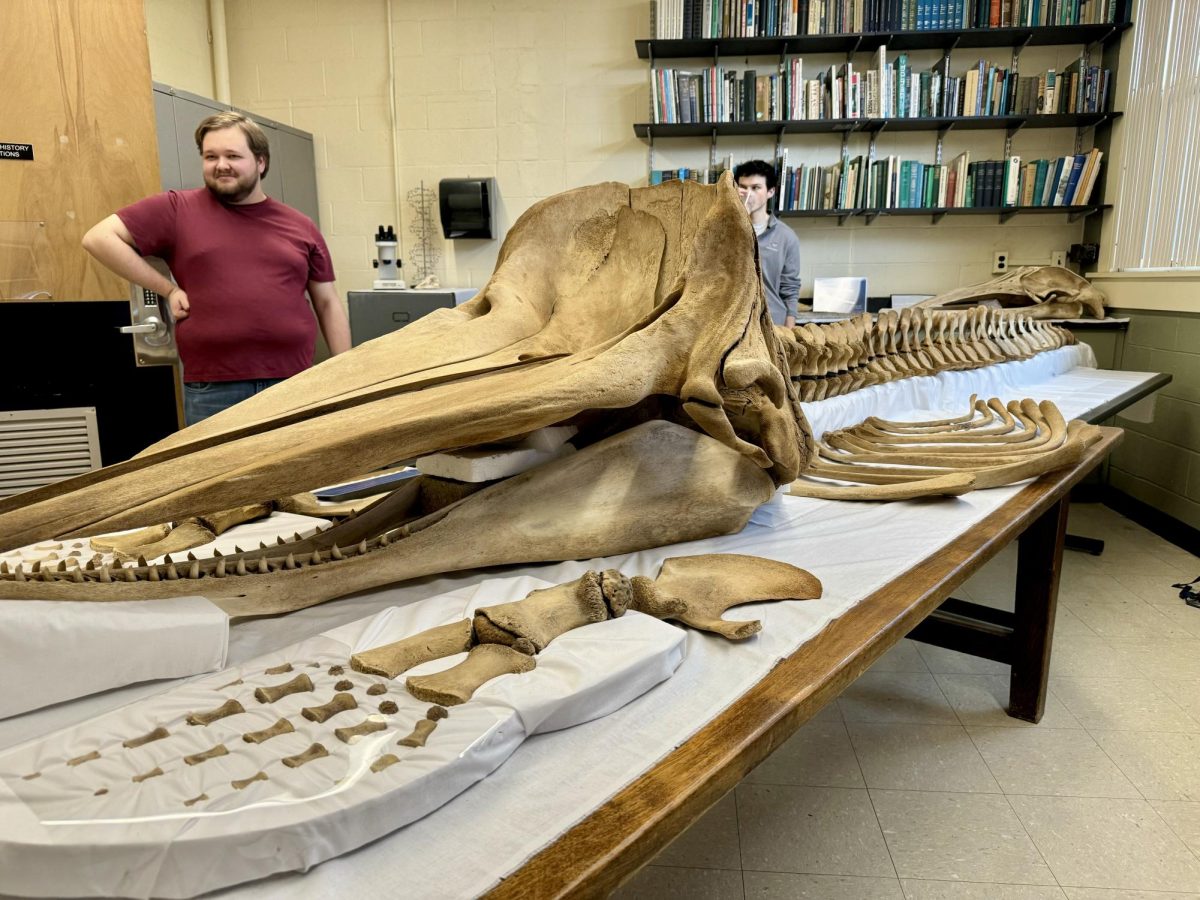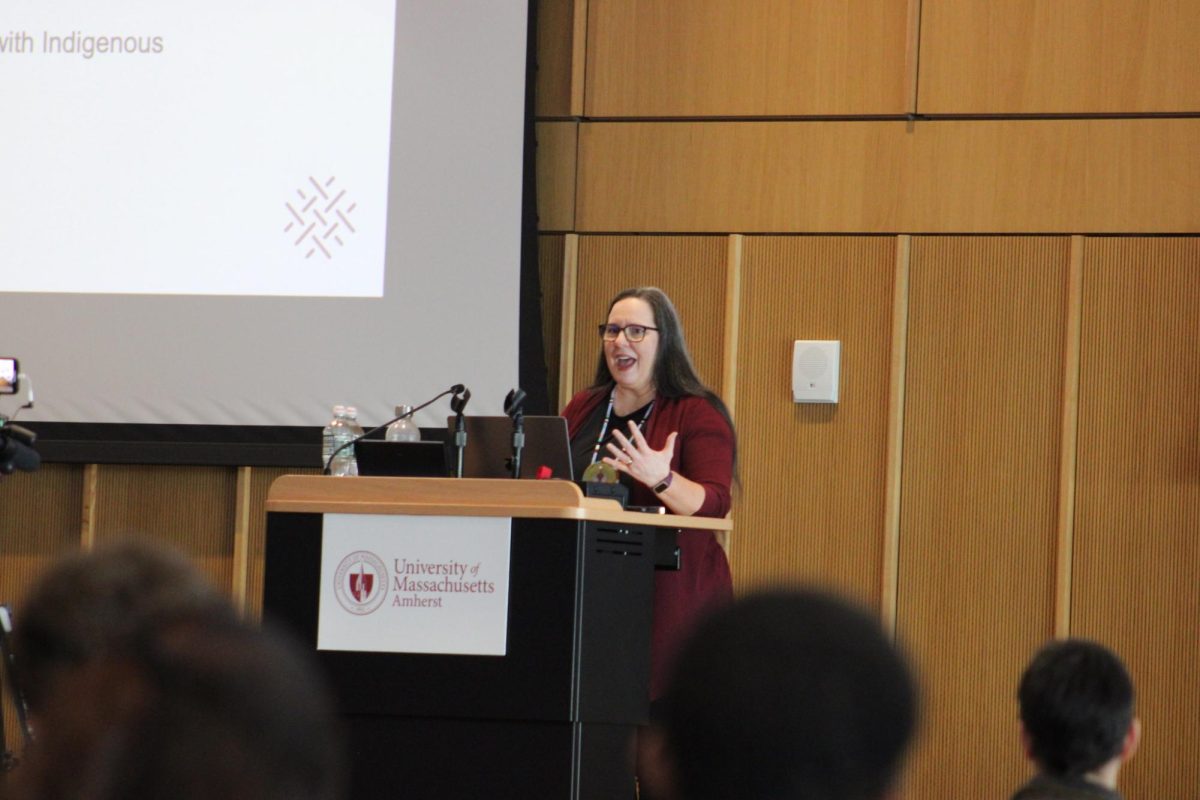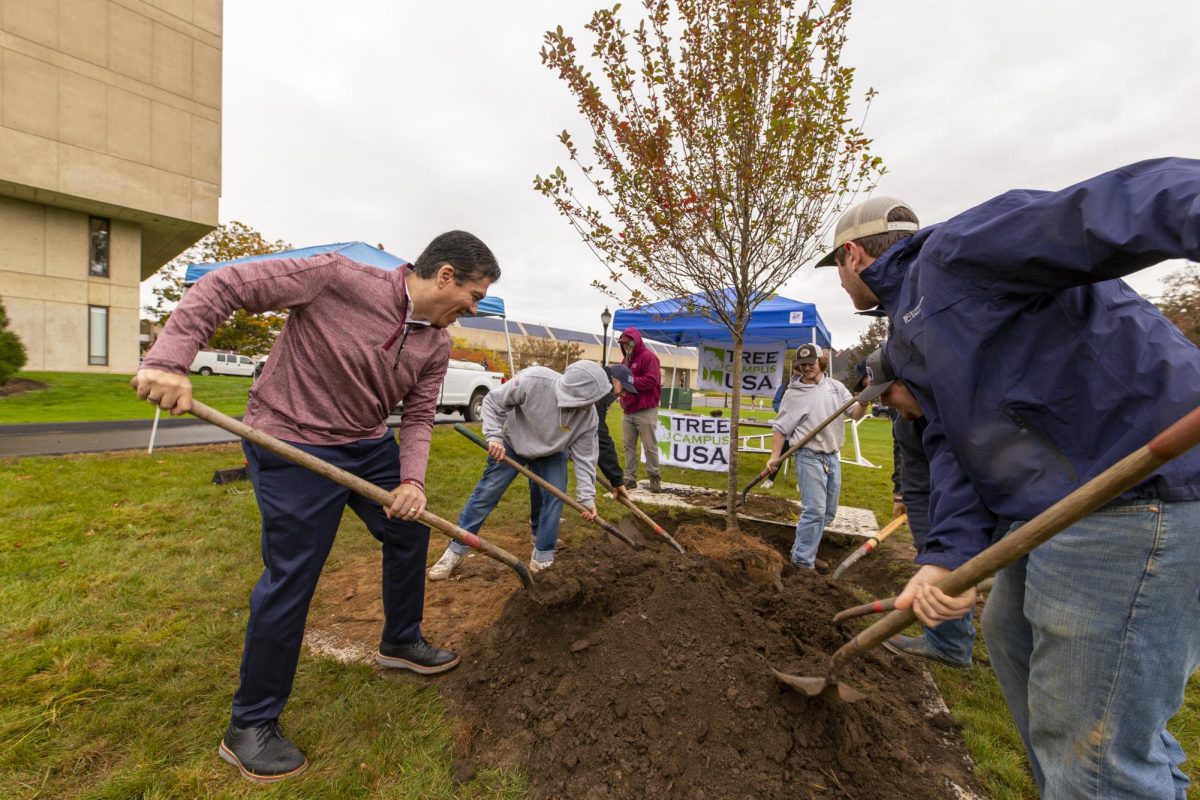
Approximately 60 people gathered in Gordon Hall at the University of Massachusetts on Monday to discuss the state of climate policy in Massachusetts and what the future may hold.
Former State Representative Ellen Story moderated the panel that included research and policy director of Climate XChange Dr. Marc Breslow, State Representative Solomon Goldstein-Rose, economics professor Robert Pollin, professor and Department Chair of landscape architecture and regional planning Elisabeth Hamin and mechanical and engineering professor James Manwell.
Climate XChange is a nonprofit organization working for a comprehensive policy solution on the issue of climate change.
Breslow, who received his Ph. D., in economics from UMass, mainly discussed Bill S.1821 and Bill H.1726 of the Massachusetts General Court, which act to combat climate change, promote green infrastructure, reduce greenhouse gas emissions and create jobs.
Goldstein-Rose, a graduate of Amherst Regional High School and Brown University, discussed how Massachusetts has the ability to take the role of developing technology for the rest of the world. He stressed how energy consumption needs to be reduced drastically and new technologies that can help with that issue. He discussed several energy solutions including the Clean Energy Trust.
“The idea is to have a pool of money that can be used to give loans, loan guarantees and other financing mechanisms to enable either energy efficiency projects or clean energy projects,” Goldstein-Rose said.
Pollin added to Goldstein-Rose’s argument and emphasized how we need to get carbon dioxide emissions down from the current level. He explained how economic growth does not need to be sacrificed because there will be more jobs. Pollin argued clean energy will create various types of jobs, including manufacturing, construction and transportation.
Hamin talked about the need to invest in infrastructure and how we have already adapted to climate issues, such as flooding and heat waves, by implementing rain gardens, green roofs, pools and cooling centers.
“What we need to do is invest in infrastructures that achieve multiple goals,” Hamin said. “We need infrastructures that achieve ecosystem restoration and protection and/or social goals.”
Manwell discussed off-shore wind and how Massachusetts has the largest off-shore wind resource. He briefly discussed the history of off-shore wind and its creation in 1972, but focused on how much energy Massachusetts could create.
“You could make all of the electricity for Massachusetts with off-shore wind,” Manwell said. “We need to take advantage of the resources that are intrusive to Massachusetts.”
The panel also discussed how citizens can become involved and make a difference. Goldstein-Rose encouraged everyone to write testimonies about the aforementioned bills and present them at hearings. He also suggested people reach out to their assigned representatives.
Breslow explained the power of reaching out to Senator Stan Rosenberg, Governor Charlie Baker and Speaker Robert DeLeo and how telling your story personally will have more impact.
Raymond Bradley, a professor in the department of geosciences said, “[The forum] was very interesting, [but I was] disappointed that nobody talked about public transportation because I think that is the biggest problem we have in Massachusetts.”
Bradley further discussed how public transportation is key to any successful area and driving individual cars can be difficult on crowded streets. Other audience members expressed their disappointment in the panel’s responses toward public transportation as well.
Joelle Labastide, a postdoctoral research associate in the physics department, voiced her concern of “access and opportunity” in regards to ecofriendly transportation in the future. She pointed out how she could easily ride a train, but couldn’t buy a car. She hoped this wouldn’t reflect the future of transportation and that everyone would have access to eco-friendly public transportation.
Abigail Charpentier can be reached at [email protected] and followed on Twitter @abigailcharp.




















David Fitzgerald • Mar 8, 2017 at 7:59 pm
thank you Michael Ash
the 2016 budget you reference states Physical Plant $36 million and Utilities $28 million
I’d like to see how much of that $64 million is fossil fuel purchases
in my opinion, 3 to 5 million sounds illogically low
unless you can help me to prove it
it seems to be a well hidden figure
I wonder why?
do you?
heat and electricity for 200 buildings? massive fossil fuel purchases
and
UMass is NOT committed to eliminating its fossil fuel purchases
the relatively new power plant is not going away
and that’s not hopelessness
that’s just economic reality
UMass runs on fossil fuels
and always will
toasty warm buildings because of burning fossil fuels
that is a good thing
so
can you help me find the real $ figure for UMass fossil fuel purchases?
or hey Collegian can your investigative reporters find out how much?
it’s a deep secret
seems UMass doesn’t want ANYONE to KNOW
Michael Ash • Mar 8, 2017 at 6:06 am
Contrary to the comment, UMass is making some progress in reducing its dependence on fossil fuels. For example Crotty Hall, which opened in 2017 is a net-zero energy building, reliant on geothermal heat exchangers, a solar-panel array, and highly efficient design for reducing its dependence on fossil fuels to zero. Thank you, UMass and architect Sigrid Miller Pollin.
The commenter is wrong about expenditure on the Central Heating Plant. He has overstated the operating expense by roughly a factor of twenty (20) times. Fuel expense is on the order of 3-5 million per year, not $94 million. UMass improved its energy efficiency in its move to this plant (from the previous coal burning plant); so improvement is possible with planning and resources.
The commenter is right that fossil fuels are a concentrated, easy-to-use energy source. But they have grave consequences for the environment, there are alternatives that we can use. If we account the true cost of fossil fuels, including the environmental and health costs, they are not cheap.
Finally UMass led by its students has been making a difference in policy and investment. UMass is committed to divesting its financial resources from fossil-fuel corporations.
The point is that the hopelessness is not warranted. We can make the green transition at UMass and beyond.
Sources
http://competitive-energy.com/CES_UMassLNG_Presentation.pdf
https://www.umass.edu/physicalplant/utilities-0
http://www.umass.edu/af/budget/library/Table%20III%20-%20All%20Current%20Fund%20Expenditures.pdf
David Fitzgerald • Mar 7, 2017 at 8:15 pm
Fossil fuels rock!
you know…
like at UMass where the Central Heating Plant yearly budget is $94 MILLION
wow
can’t see it, but just imagine the natural gas PIPELINE that supplies that plant
who will PROTEST that PIPELINE?
yes, UMass buildings have been toasty warm this winter
in the future, more of the electricity will be supplied by alternatives
(by the way, all alternative energy equipment is manufactured using fossil fuels)
but no way will UMass ever be heated by anything but burning fossil fuels
because that’s what we humans do – we burn fossil fuels to stay warm
thank you, fossil fuels
I don’t know anyone at UMass giving up their daily use of fossil fuels
thank you, fossil fuels
seems like we all like them a lot
Fossil fuels rock!